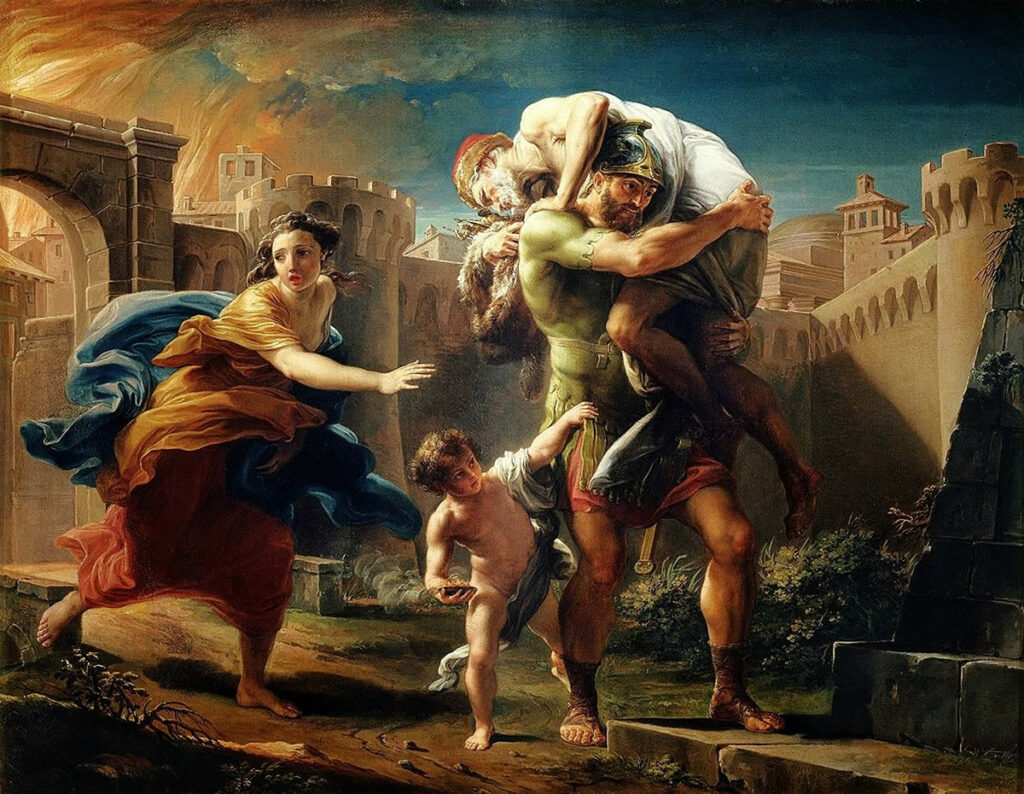Blog Post
Peter Kreeft on how to destroy Western civilization
By Jonathon Van Maren
One of the things I try to do here at The Bridgehead is regularly review depressing books on the “melancholy, long withdrawing roar” of Western civilization, as Matthew Arnold might have put it. Catholic philosopher Peter Kreeft’s 2021 How to Destroy Western Civilization and Other Ideas from the Cultural Abyss, a collection of his essays and columns, is one such book.
Now, Kreeft is a Catholic and I am not, so I don’t buy the “Mary, patroness of the Americas” and an assortment of other papistry his pen produces, but there is much genius in this little book, as well. For starters, his writing is phenomenal, and so I read him as one writer with much to learn from others. He’s also witty and covers often obscenely dark topics with a light touch others couldn’t hope to pull off.
This isn’t my favorite book of Kreeft’s—that would be his odd novel An Ocean Full of Angels, in which he proved—as did Roger Scruton with his magnificent Notes from Underground—that some philosophers can occasionally do good fiction. But there are many gems in How to Destroy Western Civilization that make it worth the read, and many insights that linger after it is put down.
Some of these insights are obvious but need to be stated because we live in a profoundly stupid age. For example, Kreeft advises his readers to have children. Without them, civilization simply ceases to exist. It is an irony that many of the climate change activists who make up Extinction Rebellion are rebelling against extinction by choosing not to have children—which is to say, choosing voluntary extinction. Kreeft doesn’t mention that a primary plan of the Enemy is to indoctrinate our kids rather than have their own, but things have gotten much worse since some of these essays were written.
Kreeft rightly notes that our ancestors would quite literally not be able to believe how many children we kill through abortion. Many people don’t want to bring children “into a world like this”—I’ve heard that countless times in my work as a pro-life activists. But these people are not referring to the spiritual impoverishment of our world—I’ve never heard someone say that it is faith or hope we are lacking. They mean stuff. Wealth. During the richest and most peaceful period in human history—even for the poor—with the highest standards of healthcare, people don’t want to have kids. Materialism is a disease, and social media exacerbates it.
“No civilization ever had as much money as we do,” Kreeft writes. “Even the moderately poor today have more stuff, and more money to buy stuff, than the moderately rich of any past civilizations. No civilization has ever had as much knowledge and power, that is, science and technology, as we have…The average person before the twentieth century experienced at least ten times as much pain perhaps 100 times as much pain, as the average person today.” And yet…
Kreeft points out that the longest-lasting civilizations have always had a fundamental respect for the family. He lists four: Jewish civilization (3,500 years), Confucian civilization (2,100 years), Islamic civilization (1,400 years) and Roman civilization (700 years.) And then there was Christendom, which has devolved into what we now call modern civilization. Some would call it post-Christian; Kreeft says it most appropriately understood as apostate Christendom. That apostate civilization is busily exchanging Christianity for the harsh rule of the sexual revolutionaries, where conscience has no place and obedience is demanded. Religious liberty is being exchanged for sexual liberty.
“It’s not their behavior that we threaten, it’s their conscience,” Kreeft observes. “They want us to approve their behavior, at least implicitly, by paying for it. We are the last people in our culture who say no, who judge, who dare to play the prophet. Prophets are always unpopular. There’s no profit in being a prophet. Prophets are lights that are a bit too bright. They show up the artificiality in the air-brushed Playboy fantasies. They threaten the fun. Prophets are X-rays that can show cancer to patients who are living in denial.”
But there is something they do not realize, Kreeft notes: “Paradoxically, we are fighting for their consciences as well as our own. And they are fighting against their own consciences as well as ours.”
How to Destroy Western Civilization should not be an easy read, considering the subject matter. Yet it is. Kreeft writes like Chesterton—a happy warrior. And of course, the reason he spends so much time and so many words explaining how to destroy Western civilization is because he hopes that perhaps we will collectively decide not to—that perhaps some will read this book and decide to do a little reverse-engineering. Or if that ambition is too grand, perhaps just a few people will settle down, raise a family, and begin the work of creating civilization anew.








